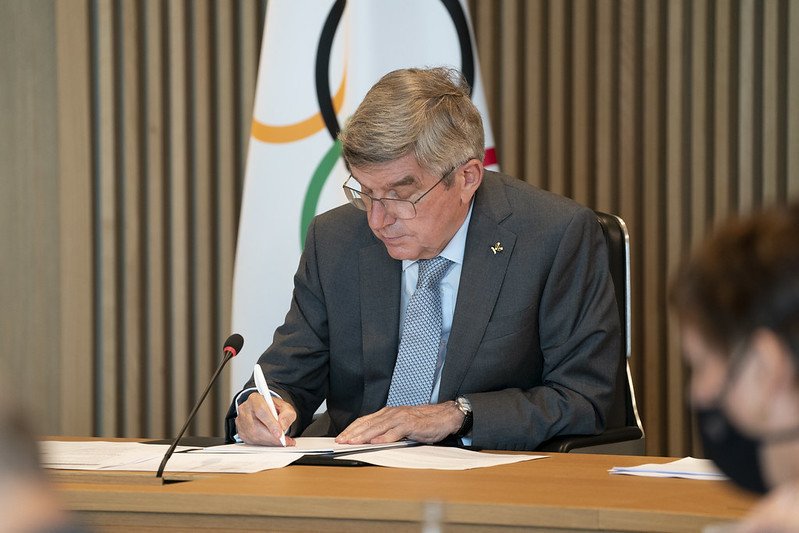International Olympic Committee (IOC) President Thomas Bach is set to arrive in Tokyo for the delayed Olympic Games on July 9, according to reports.
The date is three days earlier than planned as the IOC had said he would come to the Olympic and Paralympic host country on July 12.
Bach had been due to visit Tokyo in mid-May before his trip was postponed and eventually cancelled because of a state of emergency imposed in Japan, as a result of rising COVID-19 cases in the nation.
The German lawyer and Olympic fencing gold medallist will arrive in the Japanese capital after a chaotic build-up to the Games, postponed from last year because of the pandemic.
The IOC, which relies heavily on broadcast income from the Games, has been criticised for pressing ahead with organising the event amid the global health crisis.
Japan's opposition leader Yukio Edano earlier this month called for Bach and other VIPs, such as world leaders, to be banned from attending the Olympics due to COVID-19 concerns.
Edano, the head of the Constitutional Democratic Party of Japan, argued that only athletes, referees and support staff should be allowed to attend while warning that Tokyo 2020 could cause an "explosion" of new coronavirus infections.
Medical officials have warned the Games, set to open on July 23, could become a "super-spreader" event.
The IOC and Tokyo 2020 organisers will implement a series of strict rules they claim will ensure the Olympics and Paralympics are safe and secure, including a reduction in the number of accredited officials and banning visits to tourist areas.
The IOC has also claimed more than 80 per cent of people inside the Athletes' Village will either have been vaccinated or be in the process of inoculation in time for the Games.
Public opinion remains split in Japan over hosting the Games during the COVID-19 pandemic.
The Yomiuri Shimbun newspaper found 50 per cent of respondents to a poll conducted earlier this week are in favour of the Games taking place, with 48 per cent wanting the event to be cancelled.
The poll represented a boost in public support for Tokyo 2020 as opposition towards the Games has been high in recent months.

